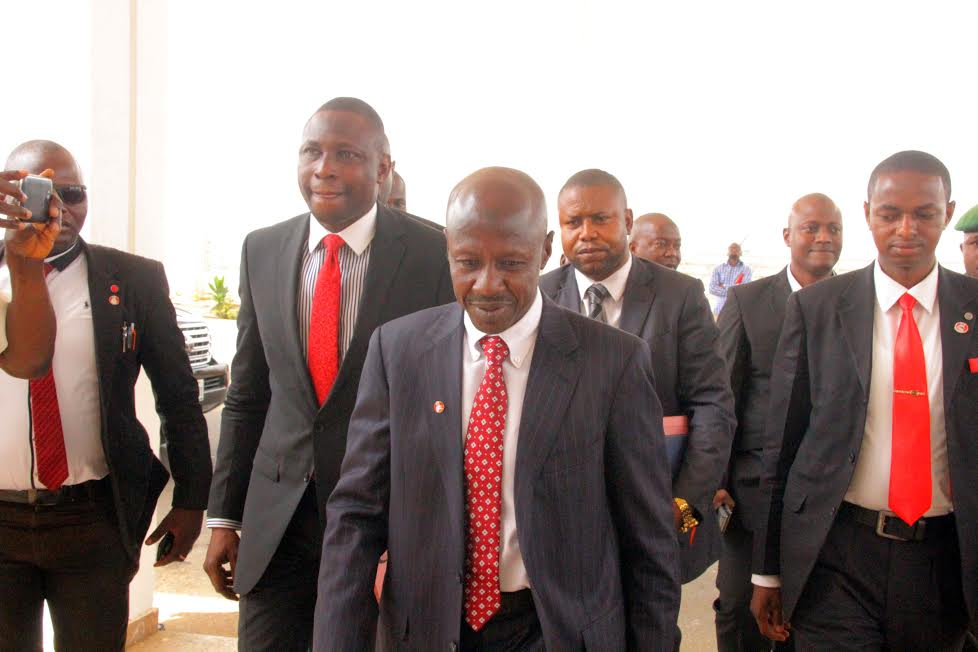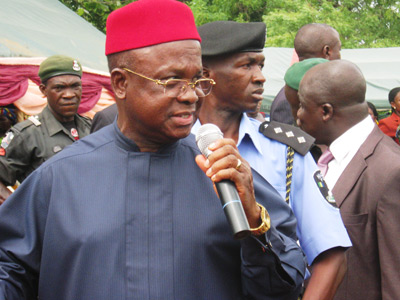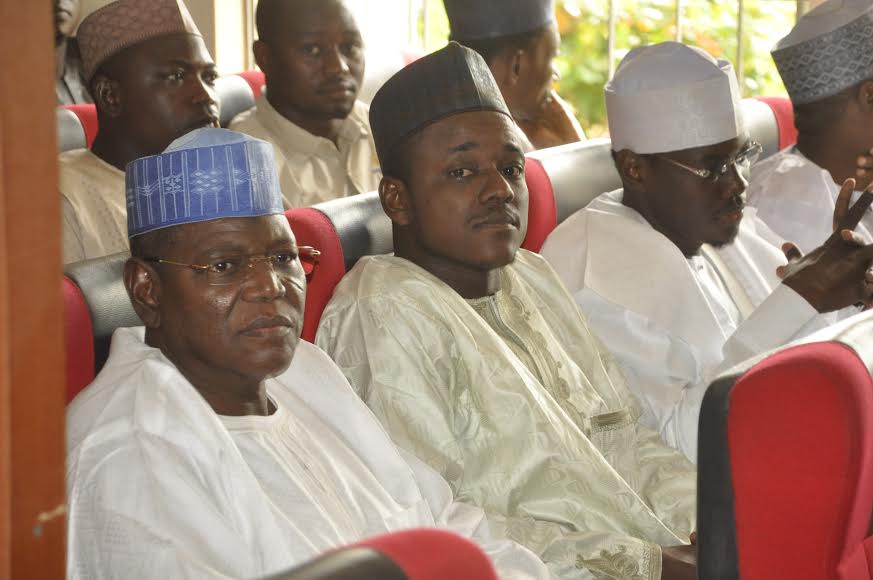By Onofiok Luke
The growing ethnic-based political tension and the seeming political despondency have in in recent times heightened and pushed to the front burner the need for Nigeria’s long overdue political and economic restructuring. From a renewed distasteful secessionist agitation, agitation ostensibly incongruous with reason, to the affront and threat to our bond of unity by some elements in the country. The clarion call for restructuring of the country has never been louder; and the need to respond to this indispensable invitation is imperative.
I am happy that the elites which hitherto ‘shied away’ from the subject of Nigeria’s political repositioning are today in support for it. I am happy that for once, many Nigerians have openly acknowledged the inherent advantages of restructuring and its execution as a matter of urgent national importance. It is a good development that the consensus is building around the benefit of restructuring for every majority tribe and the marginalised minority.
Historically, what is today a clamour for our country’s political restructuring began in the colonial days via the agitation for independence. Lord Lugard amalgamated the present units into one in 1914 for administrative convenience, a move which marked the beginning of the current regional “marriage of convenience”. In search of relevance and political participation, the nationalists felt it was time to take over the reign of leadership for the betterment of the citizens and thus began a crusade for a new structure in the administration of Nigeria with much emphasis on self-rule. This later came to pass in 1960 with Nigeria taking a new political structure as the Union Jack was lowered. This ended the first phase of the restructuring of the nation. However, the times of these events were not as perilous as today. The fabric of patriotism and sincerity in leadership was yet to be torn into shreds on the altar of ethnicity, religion, corruption, exploitation, exclusion and marginalisation.
Advertisement
The call for restructuring has always arisen from fear of marginalization, especially among true minorities, not the self-tagged minorities who have major stakes in the political space. If there are groups in the Nigerian nation that should crave for restructuring, these should be the down-trodden souls of the Niger Delta region who have had their total well-being mortgaged in the Nigerian project.
Over the years, agitations for restructuring came with the call for resource control, federal character principle, true federalism and even the 35% affirmative action for women to increase their participation in governance and same agitation for more youth participation.
Today this call has gained the status of a socio-political philosophy and struggle; maybe it is a philosophy driven too slowly by our leaders, past and present. The call for it is often very loud during political manifestos but when power is acquired, our leaders past and present shy away from putting out the revolutionary ideals, they instead branded by either doing little or nothing to effect a restructured Nigeria. History proves this so to be. General Ibrahim Babangida came on board and ended up creating states. His successor, General Sanni Abacha severed the country into six geo-political zones; President Olusegun Obasanjo came and avoided many begging questions on the country’s structure; President Musa Yar’Adua came with a 7-point agenda and also avoiding many nagging questions pertaining to Nigeria’s multi-structural deficits. President Goodluck Jonathan tarried till toward his terminal days in office when he convoked a summit, in that guise, with limited time to address pressing national issues. The report was hurriedly brewed and submitted but yet to be unveiled, studied and implemented. Beyond rhetoric, therefore, at no point have we truly forged an agenda for restructuring. The political will to do so has never really been there.
Advertisement
As it stands, Nigeria is under a socio-political siege impregnated with many upheavals. Ethnic and religious tensions are on the rise and motherly love has grown cold. Some are bent on taking the path of secession while political and economic stagnation holds sway. In the face of all these problems arises a dire need for the nation to be restructured holistically along the lines of concrete reality. If indeed our federalism is to work, it has to be re-shaped to be all-encompassing, enduring and able to allay the fears of all and sundry.
To this end, the need for political restructuring arises. It is common knowledge that countries restructure by carrying out far-reaching reforms often through determined entrenchment of true fiscal federalism, ensuring resource control, state policing, flexibility of legislative powers between state and federal legislatures, and local government autonomy.
To put things in perspective, how many of us calling for the restructuring of Nigeria are ready to support true fiscal federalism and absolute resource control? How many of us are ready to support the decentralization of state security so that federating units could run a state police side by side national policing? Restructuring entails decentralization, devolution of power; and deconcentration of the country’s governance through a carefully architected decentralization reform programmes geared towards complete political and economic restructuring.
Restructuring the nation along the lines of true federalism with emphasis on resource control is a key factor in having stability and national peace. This will enhance capacity building, an economic boom among the component units who will be eager to tap, explore and process their resources for common good as only a reasonable percentage will be paid to the center. This will put paid to the current master-servant relationship, the cold war and the disaffection going on between the states and the federal government. It will also ensure speedy all round development in infrastructure, jobs, a sense of belonging and fulfillment.
Advertisement
Introducing and maintaining a viable state police force will be a significant step in a restructured Nigeria. A state police force dominated by mainly indigenes of the state makes crime fighting and security challenges less cumbersome. The geographical location becomes a familiar one to any crime buster while the state police work hand in hand with the federal police under mutual cooperation.
For citizens to benefit more from legislation, we want to see a devolution of power; one which will boost matters in the concurrent legislative list and allow state assemblies to legislate on certain matters in the exclusive legislative list. The national assembly must relax its powers in certain areas which directly impact on the people. Such areas are power, solid minerals/mining, water ways management etc. This shall boost the revenue base of states.
Local government autonomy is very essential in the delivery of democratic dividends to the people. Such autonomy must be inclusive of the finances that accrue to the councils without any intermediary.
As a corollary, a truly restructured Nigeria would make for a less politically attractive center and quell the fact that states would look into their areas of comparative economic advantage as a major step towards achieving peace. We cannot afford to sit on the fence and watch while our nation, destined for greatness, degenerates towards anarchy. The benefits of having a restructured nation are innumerable and must be tapped for the rapid growth of today’s Nigeria and for posterity. But are we genuinely ready to press for it?
Advertisement
As the intensity of the call takes root across the country, one only hopes that this is not another fleeting national discourse, propelled by the sweetness of its rhetoric narrative than by shared determination. It is hoped that the inundation and preponderance of the argument for restructuring is driven by our solid conviction and collective readiness and willingness to achieve political restructuring. For instance, our readiness to achieve restructuring should begin to show in how seriously we take the implementation of the recommendations of the 2014 national conference report and the ongoing constitution review exercise. We should begin to discuss restructuring in the real context of it. We cannot talk about restructuring without discussing the knotty issues of 100% resource control by states, autonomy for local governments, devolution of power, and decongestion of government at the center. Until this is done, we are not ready to restructure and attain our full potential as a people.
Onofiok Luke is the Speaker Akwa Ibom state House of Assembly
Advertisement






